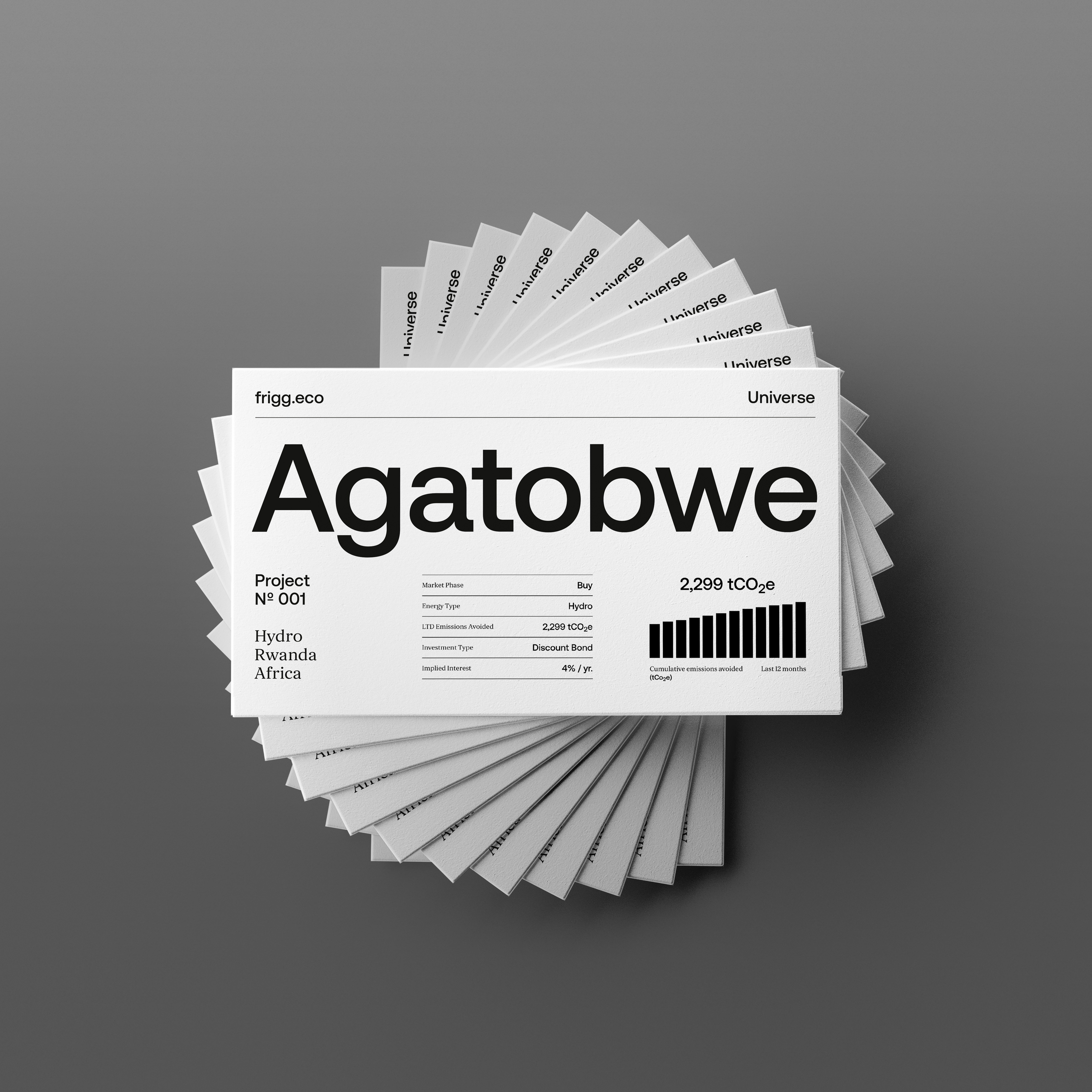How does DeFi improve the bottlenecks of traditional finance in sustainable financing?
Traditional and decentralized finance can work together to fund renewable energy and other sustainable projects.

Governments and companies are committing to ambitious carbon reduction goals for years, but investors are struggling to find projects where they have promised returns and invest sustainably. Financing of sustainable projects need to be significantly upscaled to achieve climate goals.
Our mission
Frigg splits the ownership of sustainable projects into smaller parts by tokenizing their equity and debt financing. Every investor, small or large, can be provided with an equal investment opportunity.
By tokenizing a hydro asset, the ownership can be split into fractions in the form of tokens which enables anyone and anywhere the opportunity to invest, vote and track real time performance.
It is estimated that the world needs around $5 annually to achieve net zero carbon emissions by 2050.
Relevance for Renewable Energy
Renewable energy is crucial for achieving climate goals, but the scale of investment in clean energy needs to increase significantly. Estimates show that $5-7 trillion per year is needed to meet the Sustainable Development Goals and transition to a green energy infrastructure.
Developing countries, in particular, face a funding gap of $2.5 trillion per year and often lack the means to leapfrog carbon-intensive energy development.
Africa, where over half of the world's population without access to electricity resides, has a significant untapped renewable energy potential but faces barriers in financing.
Conventional financing models, such as infrastructure funds, are not accessible to a wide range of investors and lack transparency, leading to high financing costs.
Creative financial solutions, such as green bonds and continent-focused funds, have emerged but still require a significant percentage of equity financing. Studies have found that the weighted average cost of capital for renewable energy projects in developing economies is notably higher, leading to development barriers.
Under conventional financing models, developing countries remain in a climate finance trap exacerbated by high cost of finance. Therefore, innovative financial solutions and policies are needed to increase investment in renewable energy in developing countries.
We guarantee partner transparency as there are no financial intermediaries between investors and project developers. Investing in green bonds is usually non-transparent and requires many layers of bureaucracy.
In addition, to generate and verify the data sometimes takes months.Blockchain technology allows tracking of hydro plants to verify their generated renewable power and thus instant information on e.g., carbon reduction.
This could lower financing costs for all kinds of projects. Imagine a remote community in Rwanda building a DeFi-funded solar microgrid to power a new irrigation system and you get an idea of the potential. Remote communities could be built in Rwanda to power a solar microgrid funded through DeFi.
We work with industry-leading products
Circle: Investors can purchase ATT with USDC, a fully reserved stablecoin created by Circle, redeemable 1:1 US dollars as it is 100% backed by cash and short-dated U.S. Treasuries.
Patch: We use Patch’s API to track the carbon footprint of our token contracts on Ethereum.
Goldfinch Protocol: We accept the Unique Identity (UID) product used by Goldfinch and developed by Warbler Labs. UID is a non-transferrable NFT for on-chain identity verification. We use UID to restrict US-based persons and entities from purchasing ATT in primary market issuance.
Quadrata: We also accept Quadrata, a passport network bringing identity and compliance layer to public blockchains. We use Quadrata Passports to restrict US-based persons and entities, and high-risk individuals and entities and wallet addresses from purchasing ATT in primary market issuance.
Microsoft Azure Internet of Things (IoT): We connect to Agatobwe’s local IoT network and display in real-time the data of electricity production and web cameras.
More about Agatowbe Token (ATT)
ATT is a digital security issued in accordance with the Swiss Code of Obligations, as updated by the Swiss Distributed Ledger Technology bill. The rights of investors are laid out in the Registration Agreement and the Terms of Issue.
Purchase Agatowbe Token (ATT) with USDC with your crypto wallet on agatobwe.eco